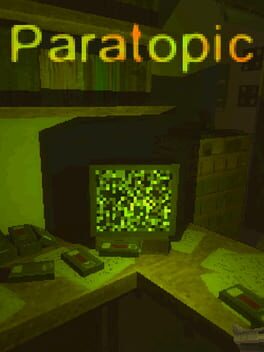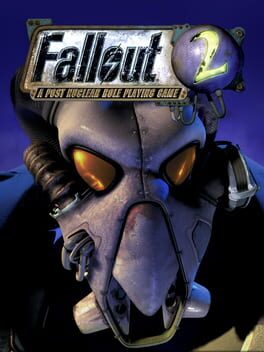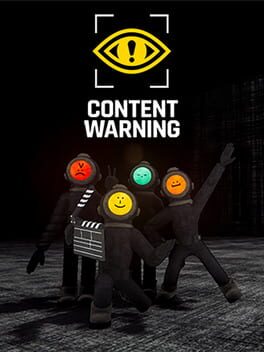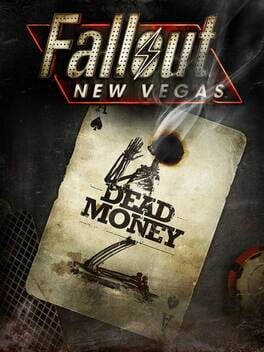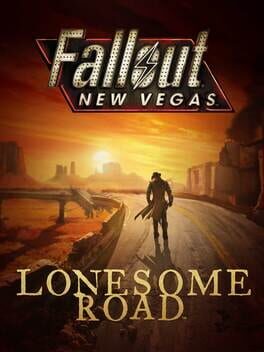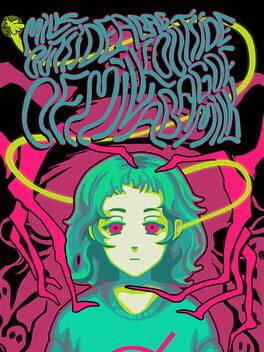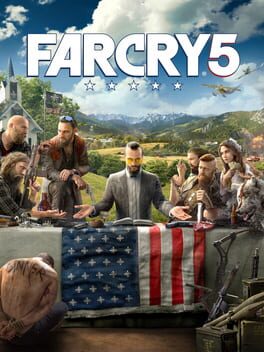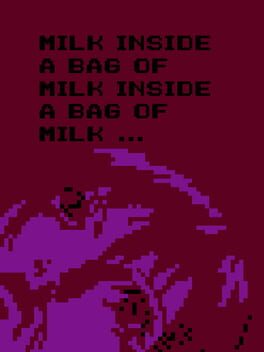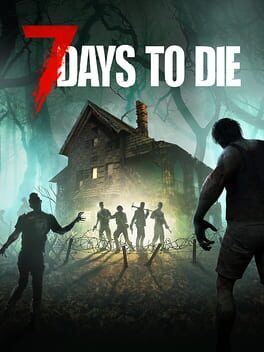ValWhenVal
2022
It took a decade for a game to get on par with the original Dark Souls for me, and why not let it be its spiritual successor? Elden Ring takes the gameplay and lore that we come to expect from a Souls game and takes it to a new level. That said, its scale by its nature takes something away from the simple charm that Dark Souls had. Would I change it, though? Probably not.
2018
There’s a lot of games that invoke surrealism. While doing so, they tell you that what’s happening is surreal, and then why that’s connected to its narrative. Paratopic, however, is one of the few that understands that the surreal is not meant to explain or instruct. It is meant to illicit a feeling.
For example, talking to the cashier at the gas station about a store all about milk. Some people will try to analyze its meaning, or maybe its relevance to the narrative, or the symbolism of milk. All that is bullshit, and ultimately will mislead you Feel more, think less. Things will make more sense.
For example, talking to the cashier at the gas station about a store all about milk. Some people will try to analyze its meaning, or maybe its relevance to the narrative, or the symbolism of milk. All that is bullshit, and ultimately will mislead you Feel more, think less. Things will make more sense.
1998
2024
Dead Money is tragically one of Obsidian’s most flawed works. It has all the makings of a masterpiece, but sabotages itself at every turn.
Let’s start with the premise: the Courier is kidnapped by Father Elijah, the former leader of the local Brotherhood of Steel chapter, and taken to the Sierra Madre, home of untold riches and glory. The Courier, along with three other of Elijah’s hostages, must complete a series of tasks to gain entry to the Sierra Madre and, then, its vault, which contains a number of treasures. The maps are polluted with traps, deadly gases, and violent patrols, which helps set the tone.
The characters, story, and themes are honestly some of the best. Father Elijah, a figure already looming over parts of the base game and Old World Blues, is one of Fallout’s greatest antagonists, up there with The Master for sure. The tragic triangle between Vera, Dean, and Sinclair is really wonderful, too.
And then there’s the theme, which is all about letting go and moving on. Dead Money really hits a home run every time on this. Every character, as you’d expect, is centred around something in their life that they need to let go of, even the Sierra Madre itself.
For whatever reason, Obsidian wasn’t content with having a masterpiece, and decided to insert the most mind numbing awful combat and gameplay loop into Dead Money. It actually made me miss Old World Blue’s gameplay which is saying something.
How this came about will always be a mystery to me, but I guess I need to let it go.
Let’s start with the premise: the Courier is kidnapped by Father Elijah, the former leader of the local Brotherhood of Steel chapter, and taken to the Sierra Madre, home of untold riches and glory. The Courier, along with three other of Elijah’s hostages, must complete a series of tasks to gain entry to the Sierra Madre and, then, its vault, which contains a number of treasures. The maps are polluted with traps, deadly gases, and violent patrols, which helps set the tone.
The characters, story, and themes are honestly some of the best. Father Elijah, a figure already looming over parts of the base game and Old World Blues, is one of Fallout’s greatest antagonists, up there with The Master for sure. The tragic triangle between Vera, Dean, and Sinclair is really wonderful, too.
And then there’s the theme, which is all about letting go and moving on. Dead Money really hits a home run every time on this. Every character, as you’d expect, is centred around something in their life that they need to let go of, even the Sierra Madre itself.
For whatever reason, Obsidian wasn’t content with having a masterpiece, and decided to insert the most mind numbing awful combat and gameplay loop into Dead Money. It actually made me miss Old World Blue’s gameplay which is saying something.
How this came about will always be a mystery to me, but I guess I need to let it go.
Lonesome Road is Chris Avellone's attempt at a magnum opus, and it's honestly one of gaming's biggest disasters.
I'm going to contrast this to Knights of the Old Republic II because Avellone was involved in it, especially Kreia, and Lonesome Road is clearly a reiteration of that story (that's not a criticism).
First, let's get the biggest issue out of the way: the Courier's backstory. At first glance, this isn't necessary a bad thing. Yes, we all want a blank state RPG character to work with, but Fallout has never had one. New Vegas, ironically, is the closest that the franchise has gotten to having a blank state player character. The issue, however, is that the Courier is not treated as a character per se all game from start to finish. There are brief mentions of the Courier's backstory, such as Johnson Nash's comments in Primm, but it's fairly innocuous. Meanwhile, in KOTOR II, it is made clear from the beginning that the player character is an actual character, The Exile, with a fleshed out backstory, actions, relationships, and so on. Obviously, you can change the Exile's trajectory, roeplay as good or evil and whatever, but the story is fundamentally based on the fact that the Exile is a real character, and not just the player's blank slate to play the game. This fact shapes much of the story and the characters in it. In fact, the premise of the plot is built on regaining The Exile's memories, and builds up to the climax. Lonesome Road, meanwhile, decides that the Courier both built and destroyed a sprouting civilization. While you can sort of deny this to Ulysses, it's off-handed, and effects nothing. Not only is this deeply frustrating, but it's lazy writing. It's like if Pippin showed up at Gondor and Denethor freaks out at him because, well, he razed a village to the ground and had sex with Denethor's mom — oh, and all of this happened off-screen, and with little to no build up or context. Sure, why not? Dumb.
Ulysses — an incredibly shallow character. People criticize Ulysses because's trying to be a third way, holier than thou patronizing rebel. This isn't really the problem. He's Avellone's attempt at a war vet with PTSD that's stared into the abyss a little bit too long, so that part is okay with me. In KOTOR 2, Kreia basically did the same thing. Kreia, however, was trying to mentor the Exile, and in the end, while Kreia did talk about her own ideals, it was rooted in a tragedy that the player has come to learn, appreciate, and for which the story, the motivations of your companions, and the protagonist, The Exile, is predicated upon. Ulysses, however, doesn't try to teach the player or the Courier much of anything beyond a questionable tragedy that was supposedly triggered by the Courier, and... again, I do not care. There is no reason to. Why would anyone care after playing 20-50 hours without hearing about this nonsense. Because of this, and while this was not the intent, Ulysses' worldview really can be summed up as, the wise man bowed his head solemnly and spoke: "theres actually zero difference between good & bad things. you imbecile. you fucking moron"
Ultimately, this is a story that really only exists to tell you things about other things. Things I'm not invested in, nor ever will be. It's self-indulgent storytelling.
I'm going to contrast this to Knights of the Old Republic II because Avellone was involved in it, especially Kreia, and Lonesome Road is clearly a reiteration of that story (that's not a criticism).
First, let's get the biggest issue out of the way: the Courier's backstory. At first glance, this isn't necessary a bad thing. Yes, we all want a blank state RPG character to work with, but Fallout has never had one. New Vegas, ironically, is the closest that the franchise has gotten to having a blank state player character. The issue, however, is that the Courier is not treated as a character per se all game from start to finish. There are brief mentions of the Courier's backstory, such as Johnson Nash's comments in Primm, but it's fairly innocuous. Meanwhile, in KOTOR II, it is made clear from the beginning that the player character is an actual character, The Exile, with a fleshed out backstory, actions, relationships, and so on. Obviously, you can change the Exile's trajectory, roeplay as good or evil and whatever, but the story is fundamentally based on the fact that the Exile is a real character, and not just the player's blank slate to play the game. This fact shapes much of the story and the characters in it. In fact, the premise of the plot is built on regaining The Exile's memories, and builds up to the climax. Lonesome Road, meanwhile, decides that the Courier both built and destroyed a sprouting civilization. While you can sort of deny this to Ulysses, it's off-handed, and effects nothing. Not only is this deeply frustrating, but it's lazy writing. It's like if Pippin showed up at Gondor and Denethor freaks out at him because, well, he razed a village to the ground and had sex with Denethor's mom — oh, and all of this happened off-screen, and with little to no build up or context. Sure, why not? Dumb.
Ulysses — an incredibly shallow character. People criticize Ulysses because's trying to be a third way, holier than thou patronizing rebel. This isn't really the problem. He's Avellone's attempt at a war vet with PTSD that's stared into the abyss a little bit too long, so that part is okay with me. In KOTOR 2, Kreia basically did the same thing. Kreia, however, was trying to mentor the Exile, and in the end, while Kreia did talk about her own ideals, it was rooted in a tragedy that the player has come to learn, appreciate, and for which the story, the motivations of your companions, and the protagonist, The Exile, is predicated upon. Ulysses, however, doesn't try to teach the player or the Courier much of anything beyond a questionable tragedy that was supposedly triggered by the Courier, and... again, I do not care. There is no reason to. Why would anyone care after playing 20-50 hours without hearing about this nonsense. Because of this, and while this was not the intent, Ulysses' worldview really can be summed up as, the wise man bowed his head solemnly and spoke: "theres actually zero difference between good & bad things. you imbecile. you fucking moron"
Ultimately, this is a story that really only exists to tell you things about other things. Things I'm not invested in, nor ever will be. It's self-indulgent storytelling.
2021
1997
The original Fallout is one of the greatest takes on the post-apocalypse in any media — its writing and characters are some of the best, and it's worldbuilding is revolutionary.
Unlike the rest of the series, Fallout 1 is unapologetically bleak, harsh, and brutal. From the moment you leave your vault, throughout our journey in what was once California, all the way to your return to your home vault, there is virtually no reprieve from the bleakness of post-nuclear war America. In fact, it only accelerates all the way to the very end.
Fallout 1 is also home to one of the greatest villains in gaming. The Master's presence slowly reveals itself over the course of the game until its climax. With The Master, we are introduced to a reoccuring theme in the series: an individual, or group of individuals, obsessed with not only preventing another nuclear fallout or similar event, but seemingly absolve America of its sins — the "wrath and folly of a bygone generation," as described in another entry — an obsession ironcially leading to a new set of sins.
If you're coming from the 3D games, like myself, there's a few things to keep in mind. The retrofuturism of the series is a lot more subtle. Whereas Bethesda leans into so much (which I love, mind you) it almsot turns into retroism, the original Fallout uses it a lot more subtly. Yes, this is a CRPG from 30 years ago, so it's mechanically clunky, sometimes obtuse, and the character creation requires a full on guide if you don't want to brick your first playthrough. But it's absolutely worth playing.
Unlike the rest of the series, Fallout 1 is unapologetically bleak, harsh, and brutal. From the moment you leave your vault, throughout our journey in what was once California, all the way to your return to your home vault, there is virtually no reprieve from the bleakness of post-nuclear war America. In fact, it only accelerates all the way to the very end.
Fallout 1 is also home to one of the greatest villains in gaming. The Master's presence slowly reveals itself over the course of the game until its climax. With The Master, we are introduced to a reoccuring theme in the series: an individual, or group of individuals, obsessed with not only preventing another nuclear fallout or similar event, but seemingly absolve America of its sins — the "wrath and folly of a bygone generation," as described in another entry — an obsession ironcially leading to a new set of sins.
If you're coming from the 3D games, like myself, there's a few things to keep in mind. The retrofuturism of the series is a lot more subtle. Whereas Bethesda leans into so much (which I love, mind you) it almsot turns into retroism, the original Fallout uses it a lot more subtly. Yes, this is a CRPG from 30 years ago, so it's mechanically clunky, sometimes obtuse, and the character creation requires a full on guide if you don't want to brick your first playthrough. But it's absolutely worth playing.
2011
The best game of all time? Yes, undeniably. I first played Dark Souls in the spring of 2012, and it changed everything about gaming for me. Very few games master the art of weaving together its game play and narrative, and Dark Souls perfected it. Over a decade later, it may feel slightly unpolished compared to its newer successors, but make no mistake... it's the king of the series.
2023
2016
Whereas the first game explored mental illness through surrealism, this one grounds the experience more in reality relatively speaking. I do appreciate this for a number of reasons, however, the game doesn’t make up for the lack of surrealism, i.e. the original’s appeal, in other ways, and instead sometimes feels as if you’re making your way through a glorified young adult visual novel. Regardless, the handling of its subject matter is just as good, and its use of humour is tactful and well done.
2018
Far Cry 5 reminds me why I stay away from these sorts of games, especially from Ubisoft. The story on its surface is really interesting, but quickly you realize that it's both shallow and about as subtle as a train crash. The gun play is very average, and the world itself is just a long series of (boring) tropes.
2013
I would give this one star, but I'm giving it the extra half star for the game's depth. Aside from that, I'd rather watch paint dry. The game play loop is fairly basic for a survival game, which is fine, but since the gameplay itself is rather mundane, combined with the game's graphics that look like it's 2002, there's not much to keep someone going here.
Also, how can this game be in early access for 12 years?
Also, how can this game be in early access for 12 years?

